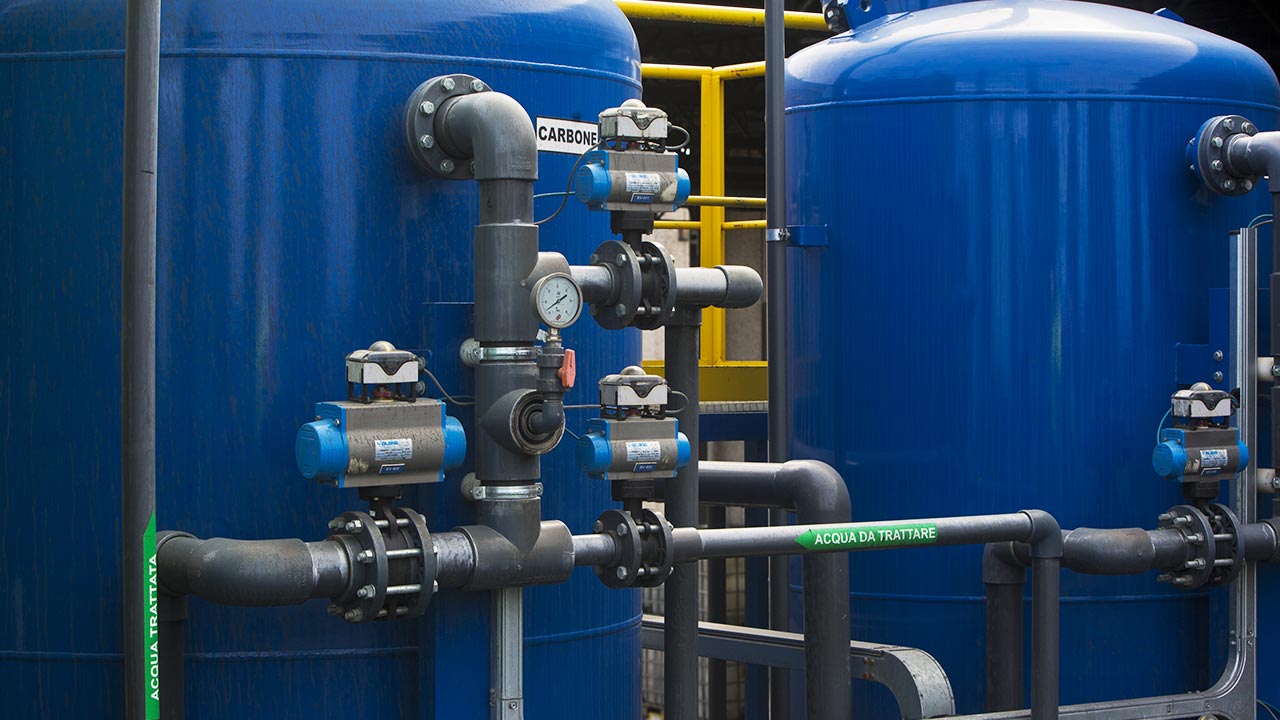
Polishing on Activated Charcoal
Water used in industrial activities, purified with the help of different plants depending on the type of fluid, source and purpose of use, often needs finishing treatment to ensure a high degree of purity.
The final step, arranged downstream of the purification processes, consists of a granular activated carbon system.
The treatment, which is carried out by means of this material of plant origin with high porosity and surface area, is accomplished byAdsorption of ahigh concentration of molecules, which are captured and maintained in its internal area. In this way, any pollutants present, which are not removed by physical-chemical or biological treatment, are eliminated.
In the case ofdrinking water, the stream decontaminates from organics, odors and unpleasant tastes, making it especially suitable in food and pharmaceutical processing.

How Polishing on Activated Charcoal Works.
The chemical process that promotes the adsorption steps is carried out through monoline or bilinear filters placed in series, or in particular is carried out for some areas where the required level of finishing is further elevated.
The flow of water, monitored after passing over the first filter, is conveyed to the second one to complete and verify the treatment. This system allows a continuous flow, with the possibility of intervention on the exhaustion and restoration of the individual line, keeping the functionality always active.
Coind's polishing plants on activated carbon allow individual lines to be monitored and managed, with the ability to take stringent action on their depletion to ensure that the water purity level is maintained at a constant level.

